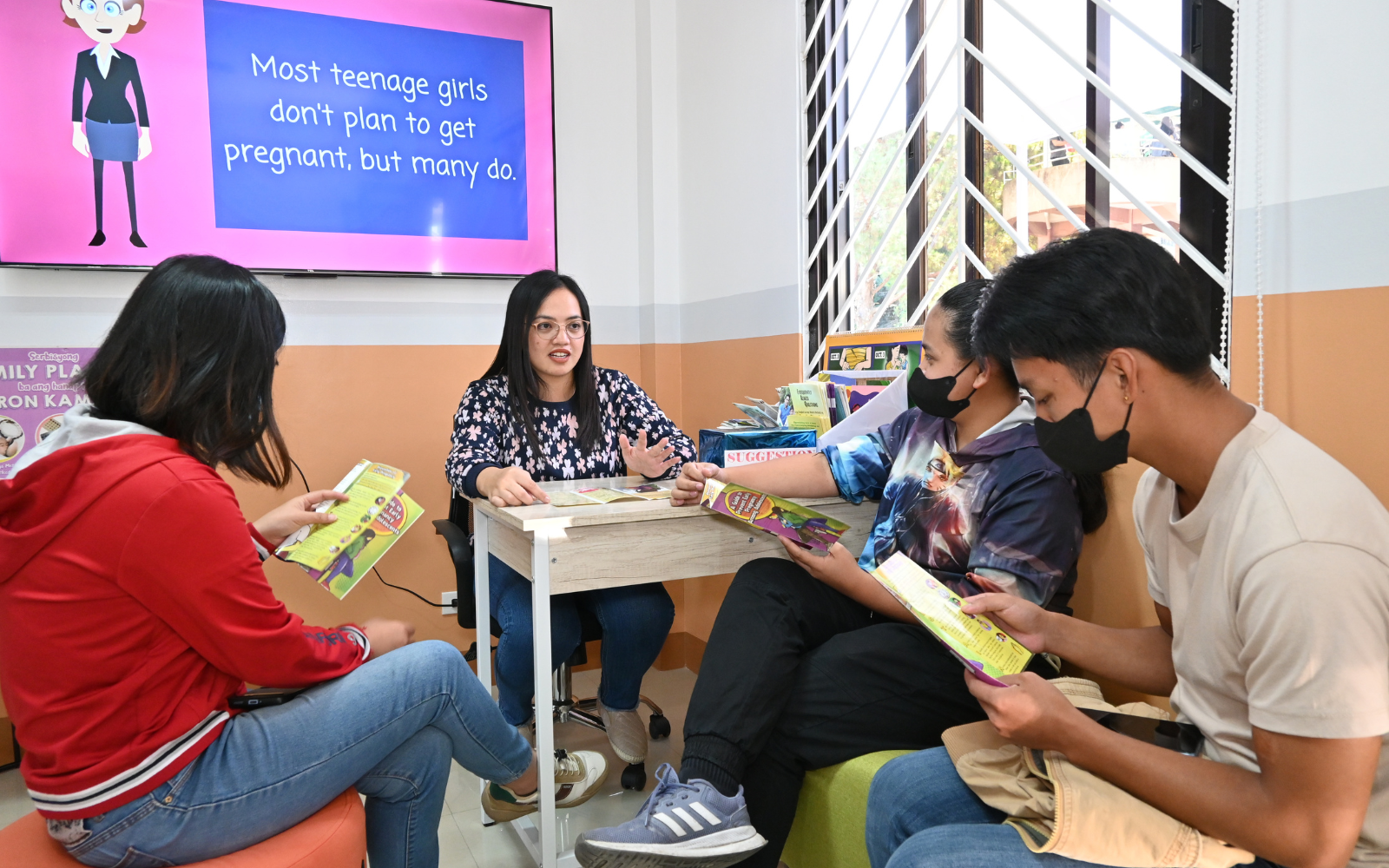Baguio City: Towards Zero Adolescent Pregnancy
Stories

Baguio City is not just known for its cool climate, scenic mountain views, and rich history but also for its pioneering efforts in adolescent health and development. The city has been grappling with the challenges of adolescent pregnancies, which, in 2018, saw an alarming adolescent birth rate (ABR) of 38.9 percent or around 809 girls aged 10 to 19 giving birth that year. This alarming situation prompted immediate action from the local government and concerned offices.
In 2021, Mayor Benjamin Magalong joined The Challenge Initiative (TCI)-Philippines to address this problem. This platform in the country, co-funded and co-implemented by the Zuellig Family Foundation and the Gates Institute for Population and Reproductive Health, aims to improve the family planning and adolescent and youth sexual and reproductive health (AYSRH) services in the city. Through TCI-Philippines, Baguio City began working to lower its ABR and improve health services for adolescents.
Establishing Adolescent-Friendly Health Facilities
Creating health centers that cater specifically to adolescents and youth was a crucial part of this effort. In 2018, Baguio City did not have any certified adolescent-friendly health facilities (AFHFs). However, by the time the city’s initiative took full effect, all 16 health centers in the city were able to receive AFHF certification. Achieving this was not easy—it required thorough evaluations by the Department of Health (DOH), the Commission on Population and Development (CPD), and other important organizations. These assessments ensured that each facility met the necessary standards to offer services that are tailored to the needs of young people
Mayor Magalong highlights the importance of involving adolescents and youth in these efforts: “We want all adolescents to be well-educated rather than to rear and raise a child at an early age. The key is with our young leaders. We want the best for you, but you must help us, too.”
Schools as Safe Spaces
Another integral aspect of Baguio’s strategy is the integration of AYSRH education within schools. At Pines City National High School, Saturday mornings are dedicated to discussions on family planning, responsible parenthood, and sexual health. These sessions are led by peer educators, trained to provide relatable and approachable guidance to their fellow students.
Sheryl K. Anos, Population Program Officer at Lucban Health Center, emphasizes the importance of peer education: “It is good to train peer educators because we recognize adolescents are more comfortable opening up to their peers.”
Engaging the Community
Beyond the schools, the city also engages with barangays and conducts door-to-door visits to disseminate awareness. Health service providers, during medical outreach activities such as human papillomavirus (HPV) vaccinations, provide mini-lectures and follow up with interactive activities to make the sessions engaging for adolescents and youth.
Anos describes this multifaceted approach: “When it comes to our adolescents, we collaborate with barangays like during HPV vaccination for 9 to 14-year-olds in the barangay hall. We’ll have a mini-lecture, then games, and then vaccination. We also go to schools for advocacy campaigns. There are times when they are the ones who tap us. Mas maganda na kami din ang lumalapit sa kanila.”
Strengthening Youth Governance
One significant outcome of TCI’s work in Baguio City has been the strengthening of youth governance. The city council approved Ordinance 53 s. 2023, known as the “Baguio City Youth Code of 2023,” which aims to maximize youth participation, including out-of-school youth, in nation-building. This ordinance encourages civil society, non-government organizations, donors, the church, media, and the business community to fully engage the youth in community development. The ordinance underscores the city’s commitment to youth empowerment by emphasizing the need for enabling mechanisms and support systems that create opportunities to enhance and prioritize youth welfare. Recognizing the limitless potential of the youth, Baguio City ensures that programs and policies geared towards their comprehensive development are being prioritized. This initiative, along with other targeted programming for various youth groups, affirms Baguio City’s dedication to nurturing its young population as future leaders and valuable contributors to society.
Collaborative Efforts and Results
The success of Baguio City’s initiatives becomes evident. By 2023, the city’s ABR had dropped to 14.5 percent from 20 percent in 2020. This remarkable improvement is attributed to the strong collaboration among the LGU, TCI, ZFF, and various stakeholders. “Apart from financial [support], when we talk with TCI-ZFF, we get suggestions and understand what can still be improved, what can be done. They guide us,” said Anos.
Former Adolescent Health and Development Program (AHDP) Coordinator Diana Aurora Delizo underscores the significance of comprehensive community involvement: “Through consultations and collaborations, we can see the perspective on the impact of our health centers on them and a wider insight on how effective our efforts are from the different viewpoints of our stakeholders.”
The Road Ahead
Despite the progress made, there are still challenges that need to be addressed. These include having enough staff for services related to adolescent health, creating dedicated spaces for young people, and sustaining the advantages of having peer educators. But the city is determined to keep getting better. Sectoral meetings for health providers, sharing of good practices, and innovative approaches such as social media campaigns and participatory activities are all part of the ongoing efforts to enhance AYSRH services.
As the sun sets on another day in Baguio City, the journey towards zero adolescent pregnancies continues. The collaboration and unwavering commitment of Baguio’s health leadership give hope to the adolescents and youth. Baguio City remains at the forefront of championing adolescent health and well-being.
